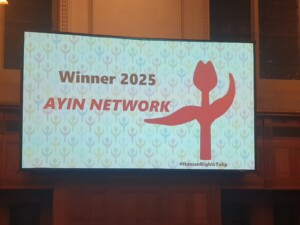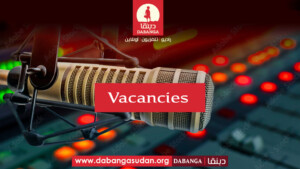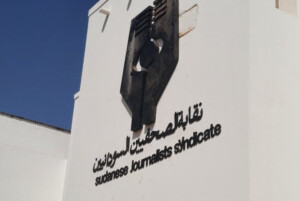Newspapers meet with Sudan’s NISS: ‘Confiscations suspended’
In a meeting between newspapers and the head of the Sudanese security apparatus NISS, they agreed to form a committee to deliberate on the so-called red lines for Sudanese media. New confiscations of newspapers are therefore temporarily suspended.
 El Baath newspaper
El Baath newspaper
In a meeting between newspapers and the head of the Sudanese security apparatus NISS, they agreed to form a committee to deliberate on the so-called red lines for Sudanese media. New confiscations of newspapers are therefore temporarily suspended.
Mohamed Widaa heads the Baath newspaper, the mouthpiece of the Baath Party Sudan. The paper was confiscated more than once in May, while in July one of the party members was arrested for making critical statements.
Widaa told Radio Dabanga that purpose of the meeting with the NISS chief and newspapers, which also included the speaker of the parliament, was to discuss the issue of the ongoing confiscations of newspapers and the penalties the NISS imposes on media.
“We tried to reach an understanding that would prevent more confiscations of newspapers in the future,” Widaa said. “Finally the meeting reached an agreement to form a joint committee to deliberate on the laying of the red lines [topics the NISS does not allow media to cover, RD] and control the performance of the press accordingly.”
“I expect that the situation for the press will worsen after this meeting with the NISS.” – editor-in-chief Mohamed Widaa
All attempts to convince the leaders of the security apparatus, explaining that the damage of confiscations is greater than its effectiveness, failed during the meeting, he said.
“The agreement to now find an additional restriction placed on their necks by the newspapers themselves – by committing to what the security apparatus calls red lines – does not represent a solution to the problem of the press,” Widaa stressed.
Temporary suspension
During the meeting, the NISS chief pointed to a temporary suspension of newspaper confiscations while the work of the joint committee that is to be formed, is pending. The security service did not say until when the temporary suspension is active.
Widaa: “Red lines should not go beyond issues of national security, which would include the movements of the army. Such a publication could harm the country.
“Any other issues than that should be considered material for the press which it should address.”
Last week, the distribution of El Jareeda newspaper was purposely delayed by the security service for six days in a row because of its critical content. It is the third time El Jareeda suffers from press curbs by the Sudanese security service in two weeks time. The security apparatus blocked El Jareeda newspaper from reaching the distribution outlets in Khartoum and the states.
At the same time the NISS has restored prior censorship of newspapers after a five-year hiatus.
Prior censorship means that officers from the security apparatus come to the printing press once the newspaper is ready to be printed, and review and remove material they do not want to be published.











 and then
and then